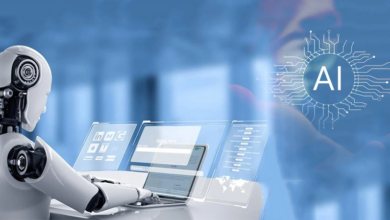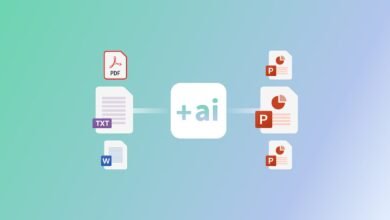How AI Is Transforming the Future of Software Development

AI is reshaping software development by introducing advanced tools that enhance automation and streamline workflows. These innovations lead to improved code quality and greater efficiency. Moreover, predictive analytics provides valuable insights into project management, optimizing resource allocation and risk assessment. However, the integration of AI is not without its challenges, including ethical concerns and the necessity for bias mitigation. The implications of these advancements prompt a closer examination of their long-term impact on the industry.
The Rise of AI-Powered Development Tools
As software development continues to evolve, the integration of artificial intelligence (AI) has emerged as a transformative force, reshaping traditional methodologies.
The rise of AI-powered development tools, particularly AI frameworks, has revolutionized processes like automated testing. These innovations not only enhance productivity but also empower developers, allowing for greater creativity and autonomy.
Ultimately, this enables a more dynamic and flexible approach to software creation.
Enhancing Code Quality and Efficiency
The integration of AI in software development not only streamlines processes but also plays a significant role in enhancing code quality and efficiency.
Automated testing tools powered by AI ensure that code meets high standards, while intelligent code reviews reduce human error.
This synergy fosters a culture of continuous improvement, allowing developers to focus on creativity and innovation, ultimately leading to superior software products.
Predictive Analytics in Project Management
While traditional project management often relies on historical data and subjective judgment, predictive analytics introduces a data-driven approach that significantly enhances decision-making processes.
By utilizing advanced algorithms, organizations can improve project forecasting accuracy and conduct more effective risk assessments.
This enables teams to proactively address potential issues, optimize resource allocation, and ultimately increase the likelihood of project success in an ever-evolving landscape.
Challenges and Ethical Considerations in AI Integration
Integrating AI into software development presents a myriad of challenges and ethical considerations that organizations must navigate carefully.
Key issues include bias mitigation, as algorithms can perpetuate existing prejudices, and data privacy, which necessitates stringent safeguards to protect sensitive information.
Companies must strike a balance between leveraging AI’s capabilities and upholding ethical standards to ensure responsible and equitable software solutions.
Conclusion
As AI continues to weave itself into the fabric of software development, it emerges as both a catalyst for innovation and a harbinger of ethical dilemmas. The potential for enhanced code quality and efficient project management stands in stark contrast to the pressing need for responsible implementation. Thus, the journey towards a fully integrated AI landscape demands not only technical advancements but also a vigilant approach to the moral compass guiding this transformative evolution.




